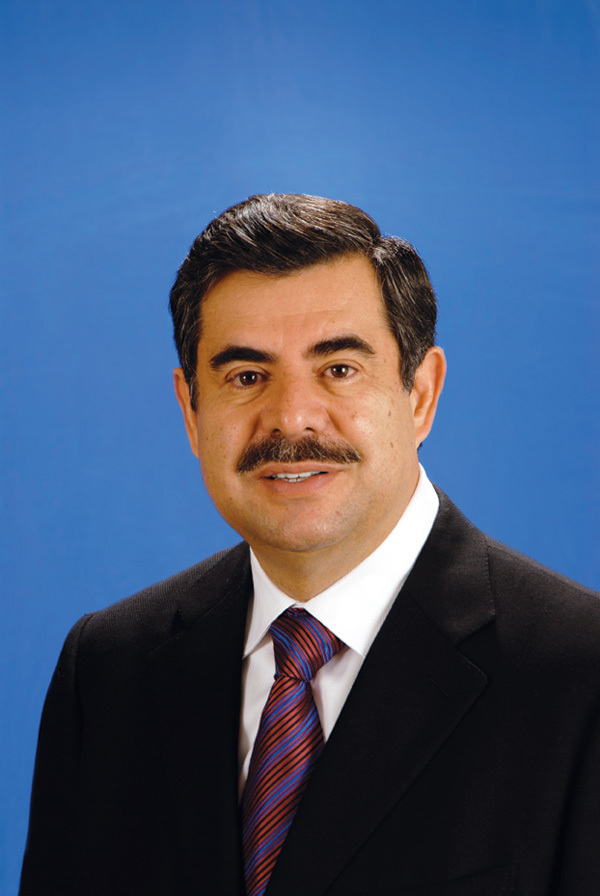MBA student Carolina Rojas (MBA ’10) interviewed Pedro Padierna, president and CEO of Sabritas Central America and Caribbean Foods, in Mexico City in August 2009. Sabritas, a unit of PepsiCo Americas Foods, is the umbrella brand under which PepsiCo markets Frito-Lay products in Mexico, including Cheetos, Fritos, Doritos and Ruffles. Sabritas controls approximately 80 percent of the Mexican snacks market.
What was the most important step for you in launching your career in international business?
What helped me the most was to focus on getting a job at a global company. When I got back to Mexico City in 1976, I knew I wanted to work at Procter & Gamble, so I applied, got an interview and got accepted. Procter opened my career to the corporate world internationally. I learned about global companies, I was very well trained, and I travelled a lot internationally. The best way to develop in an international market is to join a prestigious global company.
Do you have any advice for new MBA graduates entering the job market?
Our biggest challenge at PepsiCo is to find capable people, so the opportunity for young graduates is to identify those companies that are looking for people with special talents. It’s just a matter of devoting some time to the search, not despairing and finding the best match between your abilities and the requirements of the company. There are a lot of jobs and a lot of unemployed people, but there are lots of jobs that cannot be given to them because they lack the required specialization. Tulane students are very well prepared, so you need to take advantage of that.
What is your approach to leadership at Sabritas?
It’s important to lead by example. If people see you are an absent leader—a distant leader—they won’t follow you. I used to work in sales, and I dedicated a lot of time to being on the street. I like people to see me where the action is, and I want people to see that I’m giving the same effort they’re giving. If we ask people to wake up earlier and finish working later, we need to put forth the same effort.
In addition, I try to use my position to help others develop to their maximum potential. When you genuinely show your interest in the development, welfare, growth and knowledge of other people, your co-workers are going to admire you because they are going to realize you are putting them first. That’s the difference between the boss and the leader. The boss gives orders while the leader invites other to act on his example. Therefore, I always like to be near the people, listen to them, participate and act. For example, once I was assigned to the Gatorade division, where most of the people were athletic runners. I didn’t run a lot, but I made a promise to myself, trained and ended up running a half marathon with them. After finishing the race, I gained the group’s respect and admiration because I had never done this before. It was difficult to prepare for almost a year and go to Canada to run with the group. Luckily, I wasn’t the last one in the group to get to the finish line.
What principles have been the most important in your business career?
One is to think positively and optimistically. Having a positive “yes, it is possible” attitude won’t make problems disappear, but it will help you believe the future will be better, and there is always a better future to look forward to. It’s also important to recognize every single person as unique and irreplaceable and to try to understand them in order to offer them adequate development opportunities. As a result everyone will give you the best of themselves in doing their tasks. For example, when I was at Procter they hired three women and at that time no one wanted to work with them. They ended up working with me and we ended up being the best team. Why? Because I found they had enormous ability and I just had to accept and understand their different way of thinking. Sometimes we believe we have to communicate to people in the same way or motivate them in the same manner, but this isn’t true. I learned this after years in business. The way I speak to a sales person or to a plant worker or to the chairman of the company is not the same. You have to be flexible in your style. Often we think that in Latin America because we all speak Spanish, it’s the same leadership style, but that’s not correct. When I go to Guatemala, I have to understand that the mentality of our associates is different. The pace is slower than in Mexico City, so if I apply the Mexico City standard to associates there, they are going to be angry. The rhythm in the Dominican Republic is also completely different. If you are not flexible enough, you won’t be able to communicate.
What are your fondest memories of Tulane?
Academically, the nicest memory was the operations research class that I took in the summer. There were only ROTC students, so it was basically pure military engineers and me. I learned lots of topics that I did not know. It was an extraordinary summer. Outside the academic part, my nicest memories are the romantic hours of study in the library. My wife did her masters at Tulane as well—she did a JD and LLM—so our romantic plan every night was to study in cubicles until they closed the library. We moved to New Orleans right after we got married, so in that time we began our marriage and that period was also the base of our professional careers.


